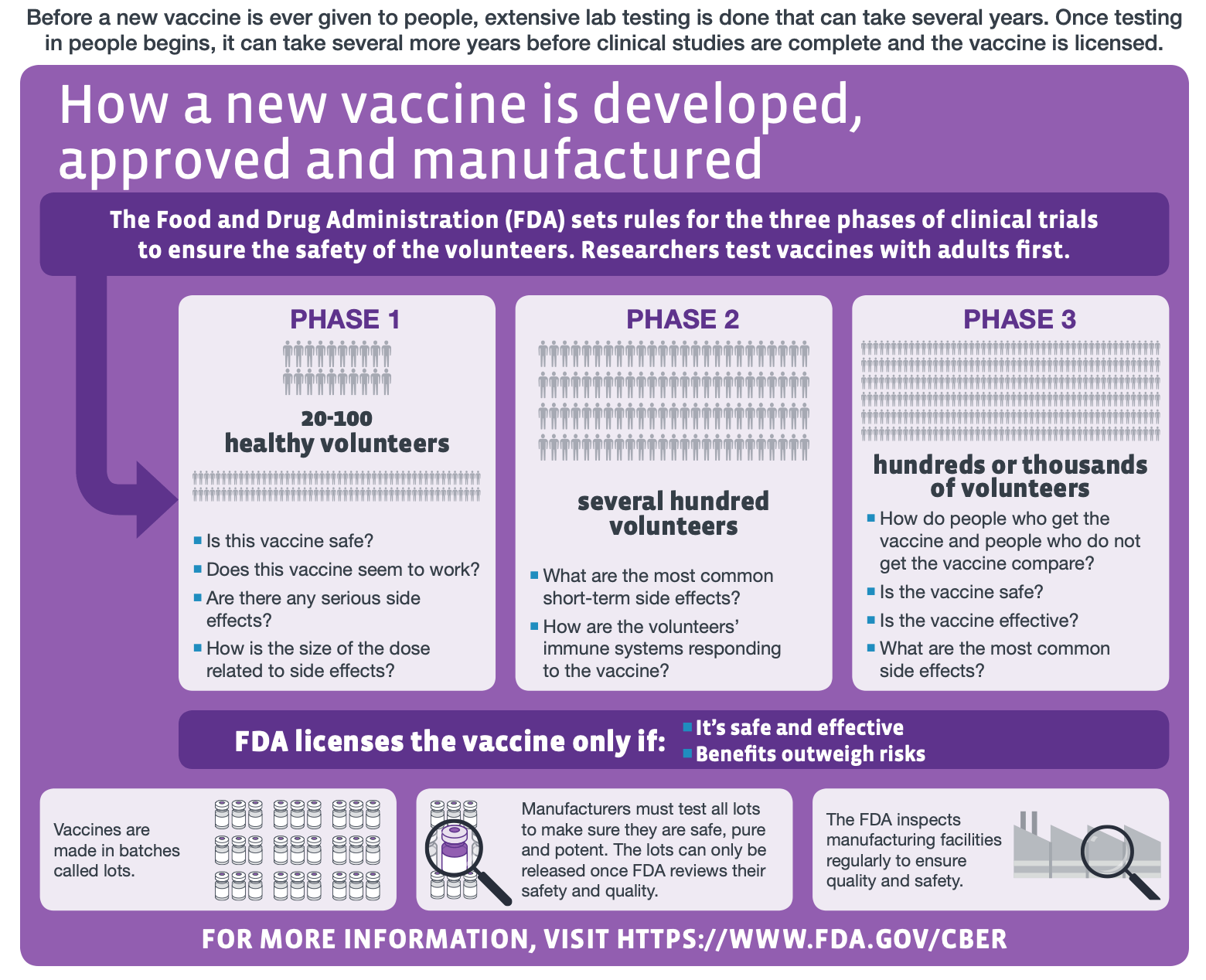

FULL CLAIM: “Would you take a vaccine with a 33% death rate to feel safe from a virus with a .06% death rate?”
REVIEW
Facebook posts (example) asking the question “Would you take a vaccine with a 33% death rate to feel safe from a virus with a 0.06% death rate?” began circulating in late July 2020, and have received more than 10,000 interactions on Facebook, according to the social media analytics tool CrowdTangle. The identity of the virus and the vaccine are not explicitly stated in the post, but it most likely refers to the virus SARS-CoV-2 and the COVID-19 vaccine.
The claim is likely based on a recently debunked claim about a COVID-19 vaccine trial in Ukraine that never took place
The question posed in the post introduces the false premise that a COVID-19 vaccine has been developed and found to cause death in 33% of people who receive it. Although the Facebook posts do not provide any information about the source of this figure, it is most likely based on a recent false claim that five of 15 test subjects died in a clinical trial conducted in Ukraine which tested a COVID-19 vaccine supposedly developed in the U.S. The claim, which was attributed to the Lugansk Media Centre (example) and the Lugansk People’s Republic, was debunked in fact-checks published by Vox Ukraine and AFP Fact Check. Lugansk is a city in eastern Ukraine which is involved in a territorial dispute between Ukraine and Russia. The claim was also published by News Front, an outlet known for publishing pro-Russia disinformation, according to PolitiFact.
PolitiFact reported finding no record of a COVID-19 vaccine trial taking place in Ukraine in ClinicalTrials.gov, “a database of privately and publicly funded clinical studies conducted around the world”, which is run by the U.S. National Library of Medicine. Similarly, the ISRCTN Registry, a clinical trial registry recognized by the World Health Organization and the International Committee of Medical Journal Editors, contains no record of any such study. Vox Ukraine also stated, “There is no confirmed information on the beginning of the COVID-19 vaccination in Ukraine” and “The Ministry of Defence hasn’t reported [about COVID-19 vaccination], either.”
According to AFP Fact Check, the Ukrainian military has also refuted the claim, with spokesperson Oleksiy Mazepa confirming, “There are no tests with our soldiers. This is obvious fake news. This is the way Russian propaganda works.”
The involvement of the Lugansk Media Centre and the Lugansk People’s Republic in the propagation of this claim suggests that it may have originated as part of a Russian disinformation campaign. Outlets with links to the Russian government have had a track record of promoting misinformation about vaccines and COVID-19, among other topics. EUvsDisinfo, a project of the European External Active Service’s EastStratCom Task Force, which addresses Russian disinformation campaigns, has documented these ongoing campaigns here and here.
In a 2018 study published in the American Journal of Public Health, researchers from the George Washington University who studied more than 1.7 million tweets found that Russian trolls and bots contributed to online vaccine misinformation by promoting discord and false equivalency, fostering the appearance of a genuine public debate over vaccines, and driving vaccine hesitancy[1].
Vaccines are rigorously tested and monitored for safety
As of 9 August 2020, more than 165 COVID-19 vaccine candidates are in development around the world, according to the New York Times Coronavirus Vaccine Tracker. A vaccine remains the only way to achieve herd immunity safely, as Carl Bergstrom, a biologist at the University of Washington, and Natalie Dean, a biostatistician at the University of Florida, state in a New York Times opinion piece.
It is challenging to determine the exact percentage of immune individuals needed to achieve herd immunity to COVID-19 in a population because the number depends on many biological and social variables, as Marm Kilpatrick, an epidemiologist and professor at University of California Santa Cruz, explains in this Twitter thread. One study published in Science used a mathematical model that considered variations in human behavior to estimate that herd immunity would be reached when 43% of a population was immune to the disease[2]. In contrast, an article published in Immunity estimated that approximately 67% of the population needs to be immune[3]. However, this estimate is based on the model of classical herd immunity, and the authors cautioned that “this model relies on simplifying assumptions, such as homogeneous population mixing and uniform sterilizing immunity in recovered individuals across demographic groups, which are unlikely to hold true [in real life]”.
Although there is pressure to develop a COVID-19 vaccine quickly, scientists emphasize that vaccine safety must remain a top priority. “You really have to test a vaccine carefully, and not just roll it out because people are clamoring for it with an epidemic underway,” said Marc Lipsitch, an epidemiologist at the Harvard Chan School of Public Health, in a PNAS news article published 30 March 2020.
Shibo Jiang, a virologist at Fudan University, also warned of significant repercussions if vaccines and therapies reach the market before adequate safety testing. “The public’s willingness to back quarantines and other public health measures to slow spread tends to correlate with how much people trust the government’s health advice. A rush into potentially risky vaccines and therapies will betray that trust and discourage work to develop better assessments,” he wrote in a Nature article.
Vaccine candidates, including those for COVID-19, must pass several stages of clinical trials that demonstrate their safety and efficacy before they are approved for public use in the U.S. (see figure below), the U.K., Australia, the European Union, and other parts of the world.

Figure—The different stages of human clinical trials in vaccine development (modified from the original graphic by the U.S. Centers for Disease Control and Prevention).
A COVID-19 vaccine that kills one in three people would not pass clinical trials or be licensed by health authorities, as this would be considered an unacceptably high risk of serious adverse effects.
Overall, the claim that a COVID-19 vaccine has a 33% “death rate” is false and unsupported by scientific evidence. It is likely based on a separate claim, which was refuted by multiple sources.
Although it remains unclear which, if any, of the COVID-19 vaccine candidates currently undergoing testing will ultimately be licensed for public use, there has been a surge of misinformation about COVID-19 vaccines on social media. Health Feedback reviewed some of these claims, including the false claims that RNA vaccines alter our DNA and that a volunteer died during a vaccine trial in April. The proliferation of such misinformation has left its mark. According to an article published in Science on 30 June, as few as 50% of Americans plan to get a COVID-19 vaccine, while in France more than 25% said they would not get a vaccine. In the United Kingdom, about 16% of people surveyed said they would refuse a vaccine and another 16% said they were uncertain.
REFERENCES
- 1 – Broniatowski et al. (2018) Weaponized Health Communication: Twitter Bots and Russian Trolls Amplify the Vaccine Debate. American Journal of Public Health.
- 2 – Britton et al. (2020) A mathematical model reveals the influence of population heterogeneity on herd immunity to SARS-CoV-2. Science.
- 3 – Randolph and Barreiro. (2020) Herd Immunity: Understanding COVID-19. Immunity.
NOTES
This fact check is available at IFCN’s 2020 US Elections FactChat #Chatbot on WhatsApp. Click here, for more.


